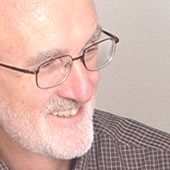Young Children’s Voices in Mathematical Problem Solving
Contributed by Dr Ho Siew Yin and Sng Wei Qin Abbie, from NTUC First Campus, for SingTeach Virtual […]
Read More
How can academic research shape the everyday teaching and learning in classrooms? After three years of studying the pedagogical practices in Singapore, CRPP is set to tackle this question. Acting Dean David Hogan shares findings on the current state of our education system and how CRPP is taking a step from research to intervention.
 We all know that students and teachers ask themselves this question every day. What we don’t realise is that researchers and education experts tackle the very same problem as well.
We all know that students and teachers ask themselves this question every day. What we don’t realise is that researchers and education experts tackle the very same problem as well.
Hundreds of studies on teaching and learning are published daily, yet very little of this “knowledge” is actually used in the classroom. As a result, the gap between “what we know” and “what we actually do about it” is glaringly obvious.
Linda Roberts, a keynote speaker at the International Conference on Learning Sciences, said it best when describing a 500-page compilation of papers presented at the conference: “This is fabulous, relevant, and meaningful work… The only problem is: no one who needs it is going to read it.”
This is an important issue for CRPP as well. For the past three years, our research has focused on the need to describe and explain the pattern of pedagogical practices in Singapore. This was in order to know what policies, theories and solutions would be effective for us. After all, the only way to overcome a challenge is to understand what it is in the first place.
So, what do we know about the current pedagogic practices in Singapore? Below is a short summary of the strengths and challenges of our current situation:
Now that we have an informed background of the strengths and challenges of the education system, it is time to use this research to aid the actual practice of teaching. Building on our research findings, the next phase of our research endeavours will focus on working with teachers on a number of targeted interventions to help schools review and trial new instructional and assessment practices.
This year, CRPP has outlined the following priorities:
In this issue of SingTeach, we feature a few schools where our research teams have begun interventions. If you like to be involved in our research, do get in touch with us.
David Hogan
Acting Dean*, CRPP
*Professor Hogan will assume the position of Dean, CRPP with effect from 1 July 2006.